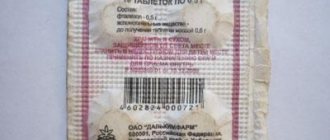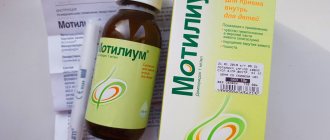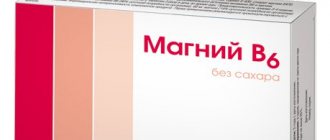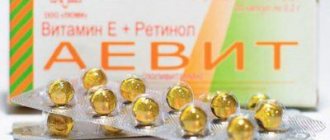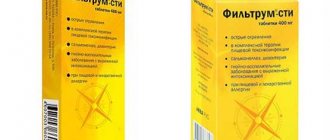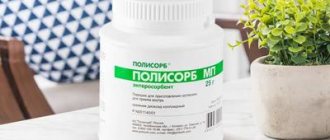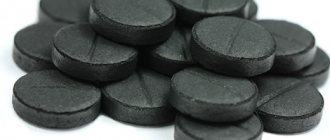Cardiomagnyl is a drug prescribed to patients with heart disease . They prevent the progression of coronary heart disease. Reduce the risk of developing angina pectoris and an acute attack of myocardial infarction. The drug prevents the formation of blood clots. To understand in what cases an overdose of cardiomagnyl occurs, let’s consider its chemical composition and effect on the body.
Precautionary measures
Often people independently decide to take aspirin in small doses. But this does not mean that such use of the drug is safe, since the person himself cannot determine the indications for use. Therefore, it is recommended to consult a doctor first. Often it is necessary to discontinue the drug because there are no indications for its use, and contraindications are discovered.
What is the danger of uncontrolled use of aspirin, the main active ingredient of the drug cardiomagnyl? Its overdose is fraught with external and internal bleeding.
A serious danger of an overdose of aspirin is rupture of cerebral vessels and the development of hemorrhagic stroke, leading to the death of the victim, paralysis of one side of the body or complete immobility of the patient.
Brain hemorrhage
Contraindications
Like all drugs whose action is aimed at normalizing the functioning of the heart and blood vessels, Cardiomagnyl tablets have contraindications. The medication is prohibited for the following violations:
- stomach ulcer;
- history of cerebral hemorrhage;
- concurrent chemotherapy;
- a person’s tendency to bleed, which is difficult to stop;
- lactation;
- bronchial asthma;
- lack of potassium;
- first and second trimester of pregnancy;
- kidney failure.
Contraindications
Doctors prescribe medications with caution for:
- hyperglycemia;
- nasal polyps;
- diathesis.
But with a high risk of heart attack and relative contraindications, Cardiomagnyl is prescribed under the strict supervision of a doctor. This is required to prevent a dangerous condition and prevent irreversible consequences.
Cardiomagnyl - side effects
As it turned out, taking cardiomagnyl is not entirely safe. It would seem that the use of such small doses of aspirin cannot cause harm. Especially considering its effectiveness and ability to prevent serious diseases.
However, taking many drugs is accompanied by one or another number of undesirable consequences. Cardiomagnetic is no exception. Side effects with long-term use of tablets most often manifest themselves in the formation of stomach ulcers and bleeding in the affected area of the mucosa. Even small doses of aspirin increase the risk of ulcer formation by 2-3 times.
Of course, the increased likelihood of damage to the gastric mucosa should not stop you from using aspirin. It is enough to pay more attention to health and regularly consult a doctor to prevent illness. When the first symptoms are detected, it is much easier to stop the pathological processes and restore the health of the mucous membrane of the upper gastrointestinal tract. Recommended doses in the range of 75-150 mg extremely rarely lead to an overdose of aspirin, provided that the dosage frequency and instructions for the drug are followed.
Contraindications to taking the drug: gastritis, advanced pregnancy, hepatitis, liver disease. In any case, only a local doctor has the right to prescribe cardiomagnyl and decide how long to take it. Particular attention should be paid to pregnant women to avoid the harmful effects of aspirin on the child. If there are problems with increased blood clotting, the doctor may prescribe other approved drugs, which allows you to replace aspirin-containing drugs.
It is forbidden for pregnant women to start taking any medications on their own due to the dangerously high risk of intrauterine death of the baby!
The placenta is not able to completely protect the fetus from the harmful effects of chemicals.
Other side effects from taking aspirin:
- Cardiomagnyl can provide some help with problems with potency. Improving the rheological properties of blood and its fluidity increases blood supply to the tissues of the cavernous bodies of the genital organ and improves erection.
- Aspirin has an inhibitory effect and helps reduce the reaction. Drivers and workers in hazardous industries are advised to exercise caution.
- Another negative consequence is coughing. However, such a symptom is nothing compared to the opportunity to avoid premature death.
Pharmacodynamics and pharmacokinetics
"Cardiomagnyl" with two main active ingredients aspirin and magnesium hydroxide is an antiplatelet agent. Aspirin inhibits platelet aggregation, reducing the ability of blood to clot and improving the quality of its fluidity.
Calcium helps to raise tone, increases the activity of muscles, as well as the walls of blood vessels. Magnesium replacement helps reduce activity and blood pressure. Thus, we can say how “Cardiomagnyl” affects blood pressure levels: the combined effect of the two main components of the drug “Cardiomagnyl” leads to a slight decrease in blood pressure, but the drug does not provide a pronounced effect in this regard. Because of this, Cardiomagnyl is rarely used as a separate medicine to normalize blood pressure. It is more related to preventive agents that reduce the risk of severe consequences of high blood pressure in hypertensive patients - heart attacks, strokes.
Pharmacodynamics
The main effect of "Cardiomagnyl" is due to the inhibition of the enzyme cyclooxygenase. The acid helps suppress platelet aggregation. “Cardiomagnyl” has a beneficial effect on breathing and helps the proper functioning of the bone marrow. After completion of therapy, the positive result from taking the medicine will last for some time, providing an analgesic effect and stopping inflammation.
Absorption processes
The absorption time of the tablets is 15 minutes. In the stomach, enzymes almost instantly hydrolyze the acid, which then passes further into the gastrointestinal tract, liver and plasma. The bioavailability of aspirin is 70%. Magnesium hydroxide does not affect the bioavailability of acetylsalicylic acid.
Mechanism of ulceration
Aspirin does not act directly on the stomach wall. Side effects occur only after absorption into the blood. Aspirin affects the secretion of certain enzymes that regulate the amount of substances that protect the walls from damage. These substances affect epithelialization, the release of the required amount of mucus and other components to prevent dystrophic changes in the gastric mucosa from the influence of hydrochloric acid. Therefore, acetylsalicylic acid itself is not able to have a significant effect on the walls of the stomach.
Considering the systemic effect on the ulcer formation mechanism, coating with a special coating, adding buffer antacids is just a marketing ploy and luring potential consumers.
Taking cardiomagnyl is convenient and recommended for most people for prevention. However, not everyone can afford to purchase it regularly. Pensioners often face this problem. Therefore, it is permissible to use regular cheap aspirin instead of an expensive drug. Such tablets are not coated and are in no way inferior to expensive drugs, and the price allows them to be used for a long time.
The most affordable option for maintaining your health
For effective prevention, it is enough to divide an ordinary acetylsalicylic acid tablet into quarters and take one part daily.
To prevent serious problems, you should take care of your heart health in advance. For men, this time begins at the age of 40, for women - after 50. It is believed that natural estrogens protect the heart from the development of disorders, and only with the onset of menopause does the female sex lose this protection.
- smoking;
- excess body weight;
- sedentary lifestyle;
- depressive states.
The main thing is to take care of your heart in a timely manner.
Elimination of risk factors makes it possible to facilitate the functioning of the heart and blood vessels and stabilize the functioning of the nervous system. Dosed physical activity of moderate intensity is good for training the heart. The greatest benefits come from cardio training: walking, swimming, jogging, cycling, Nordic walking. Power loads do not have a positive effect on the cardiovascular system.
As you age, you should pay more attention to your diet and choose the right foods. It is recommended to reduce the consumption of fatty foods, flour and sweets.
Adding fatty fish to your diet will have a positive effect on vascular health and help reduce high cholesterol levels.
Eating a large amount of vegetables stabilizes intestinal functions and provides the body with the necessary amount of nutrients. The emphasis should be on plant foods high in potassium.
After the examination, the cardiologist may prescribe medications to reduce afterload on the heart, improve blood flow and nourish the myocardium. Such drugs promote the outflow of blood from the heart to the periphery. Sometimes headaches are a consequence of vasodilation after taking medications. Simultaneous use of validol helps improve well-being. The specialist will also determine whether taking cardiomagnyl may be harmful to the health of a particular patient.
Every person, regardless of age, is at risk of suddenly developing cardiovascular diseases. To solve such problems, the drug Cardiomagnyl was created, the benefits and harms of which are the topic of our conversation today. Ignoring problems of the heart and blood vessels is dangerous and can lead to sudden premature death, so we recommend that you carefully study how to deal with the problem.
If you have a tendency towards this kind of ailment and simply for preventive purposes, doctors advise you to undergo regular examinations, eat right, avoid stressful situations and maintain your health with restoratives. Doctors often prescribe Cardiomagnyl to patients with cardiovascular diseases: the benefits of the drug have been proven and indications for it will be given below, but like any other drug it has its own characteristics and contraindications.
Noliprel: a medicine for high blood pressure
Have you been struggling with HYPERTENSION for many years without success?
Head of the Institute: “You will be amazed at how easy it is to cure hypertension by taking it every day...
Read more "
Noliprel is a potent medicine against high blood pressure. The drug is often prescribed to hypertensive patients.
For those whose value of this indicator is not too high, sometimes it is worth reducing the dosage of the medication indicated in the instructions for the drug, but in any case you should not self-medicate; the prescription and dosage must be prescribed by a doctor. All the nuances of taking the medicine, its instructions and reviews about it are given in the article.
Types of Noliprel
This drug is available in several varieties. They differ in the dosage of active substances. There are two of them in it. The table below shows their exact contents.
| Name of the drug | Indapamide dose, mg | Perindopril dose, mg |
| Noliprel | 0,625 | 2 |
| Noliprel Forte | 1,25 | 4 |
| Noliprel A Bi-forte | 2,5 | 10 |
| Noliprel A | 0,625 | 2,5 |
| Noliprel A Forte | 1,25 | 5 |
In drugs, the prefix “A” means that in this type of tablet the substance perindopril is present together with the amino acid arginine. Acid has an additional beneficial effect on the condition of the heart and blood vessels. The most effective and blood pressure-lowering drug is Noliprel A Bi-forte, but sometimes its dosage is too strong, and the doctor prescribes less strong varieties after it, with less active ingredients.
Noliprel instructions
It is a combination medication, its two active substances are listed above. Each of them has its own set of properties, thanks to their joint activity the drug is capable of:
- Influence the activity of renin in the blood;
- Reduce vascular resistance;
- Normalize the work of the myocardial muscle;
- Reduce aldosterone secretion;
- Reduces the effects of body overload;
- Reduces blood pressure;
- Increases cardiac output;
- Prevents left ventricle enlargement;
- Improves the elasticity of blood vessels.
The drug, despite its strong effect, does not affect the amount of cholesterol and lipids, does not participate in metabolic processes, and does not in any way affect the content of salts and fluids in the body. The action continues throughout the day. The desired effect, which remains for a long time, occurs within a month. After stopping its use, there is no addiction syndrome.
Release form
Noliprel is produced in the form of oval, oblong, white tablets with a line on both sides, which makes it easier to break the pill when you need to take half a dose. Tablets of different types of this product are based on weight:
- Noliprel A - 2.5 mg;
- Noliprel A Forte – 5 mg;
- Noliprel A Bi-Forte – 10 mg.
One blister can hold 7 or 10 pills. There are 14 or 30 of them in a pack.
Noliprel, indications for use
The drug is most often prescribed for essential hypertension to prevent the risk of microvascular complications in patients who suffer from this disease, as well as from diabetes.
Features of taking the medicine
This combination medication contains active substances that have a high level of impact on the body, so they are taken only once a day. This pill intake is ideal for older people who may forget how many pills were taken in a given time, as well as with I got up in the morning, took it, and don’t have to remember it all day.
It is better to take this drug in the morning, take it in one dosage for 5 weeks, then the doctor can adjust the dose of the medicine depending on how the treatment is going. If it is necessary to enhance the effect of the drug, then medications that act as calcium antagonists are prescribed together with it.
In cases where the pressure drops sharply, the doctor will reduce the dose.
In the first days of using Noliprel, you should refrain from driving a car and working on high-precision energized mechanisms, then you need to focus on your condition.
Taking medication during pregnancy and lactation
During the period of planning and bearing a child, it is better not to use Noliprel A, and if treatment was prescribed before, then you need to stop taking it and replace it with another drug.
Why do you feed pharmacies if hypertension is afraid of the usual like fire...
Tabakov has revealed a unique remedy against hypertension! To reduce blood pressure while preserving blood vessels, add to…
This medication has not been subjected to clinical studies of the effects of ACE inhibitors during pregnancy. But even if the drug was taken in the first trimester, it does not affect the development of the fetus in any way, but its fetotoxic effect has not been studied.
In the second and third trimester, Noliprel A is contraindicated. The components of the medicine may affect the development of the baby. It has a detrimental effect on kidney function, the formation of skull bones, and in a newborn there may be a slowdown in the healing of the “fontanelle”, the appearance of arterial hypotension and the development of renal failure.
To exclude the influence of a drug taken at the end of pregnancy, you need to undergo an ultrasound of the kidneys, and also check the condition of the newborn’s skull.
While breastfeeding, Noliprel is contraindicated, as it reduces the amount of breast milk and suppresses the lactation process. While taking this medication, the baby may develop jaundice, hypokalemia and sulfonamide.
If this drug is extremely important for the health of a young mother, then you may have to stop breastfeeding so as not to harm the baby.
Overdose
It causes water and electrolyte abnormalities in the body, which result in hyponatremia and hypokalemia. In addition, it is accompanied by the following symptoms:
- Drowsiness;
- Anuria and polyuria;
- Strong decrease in pressure;
- Nausea leading to vomiting;
- Decreased heart rate;
- Fainting;
- Cold sweat with chills;
- Convulsions;
- Dizziness.
Contraindications
Noliprel should not be taken if the patient has hypersensitivity to the drug. You should not take the drug for the following diseases:
- Severe form of renal failure;
- Patients undergoing hemodialysis treatment;
- In childhood;
- Hepatic encephalopathy;
- Those who have previously experienced angioedema after taking similar medications;
- Stenosis of the kidneys and their arteries.
Side effects
When treated with Noliprel, various adverse reactions of the body may develop from its different systems:
- Genitourinary. Rarely, deterioration of kidney function and decreased potency occur. And if you take the drug together with other diuretics, you will get an excess of creatinine in both urine and blood.
- Cardiovascular. It may respond to excess with orthostatic collapse, increased hypotension, rarely, but all this results in arrhythmia, myocardial infarction or stroke.
- Digestive. Accompanied by vomiting, abdominal pain, cholestasis, drying of the mucous membranes of the throat, sometimes abdominal pain, bloating or constipation.
- Nervous. Prolonged headaches occur, accompanied by dizziness, vision deteriorates, and sometimes ringing in the ears is heard, appetite decreases, convulsions appear, and slight inhibitions in reasoning and perception of what is happening.
- Respiratory. Dry cough that does not last long, runny nose, difficulty breathing, spasms in the bronchi.
- Blood Hyperglycemia, increased urea levels, pancytopenia, thrombocytopenia, hemolytic anemia and agranulocytosis.
- Skin. In case of overdose, a rash appears on them as a result of allergic reactions, urticaria, hemorrhagic vasculitis and lupus erythematosus.
Taking Noliprel with other medications
We will display the compatibility of the drug with medications in tabular form.
| Name of the drug | Ensuing consequences of joint use with Noliprel |
| Baclofen | improves the antihypertensive effect of the drug in question |
| CorticosteroidsTetracosactide | reduces the effect of the drug on blood pressure |
| Antihypertensive drugs | lead to an excessive decrease in blood pressure |
| Imipramine-like antidepressants, neuroleptics | enhance the effectiveness of the drug, but at the same time increase the risk of orthostatic hypotension |
| Preparations containing lithium | increase the toxicity of the product |
| Medicines based on potassium or its salt | lead to an increase in this substance in the blood |
| Insulin and other hypoglycemic sulfonamides | increases the body's production of sugar |
| Cytostatics, systemic corticosteroids, allopurinol | lead to the development of leukopenia |
The drug should not be taken together with alcohol, as its influence will only intensify the side effects.
Noliprel forte, analogues
Among the worthy substitutes for this drug are:
- Accusid. It is used for patients who are prescribed complex treatment with a diuretic and quinapril.
- Iruzid. Treats people with mild to moderate hypertension if they are stable on therapy.
- Capothiazide. Used in conjunction with other antihypertensive drugs, it treats any form of arterial hypertension.
- Quinard. Prescribed for chronic insufficiency and hypertension.
- Co-renitec. Used for patients undergoing complex therapy.
- Lisinopril/hydrochlorothiazide. The drug is intended for the treatment of mild to moderate hypertension.
- Lizopres. Treats hypertension.
- Liprazid. Created to cure any form of hypertension, including renovascular.
- Mypril. Reduces blood pressure.
- Rami compositum. It is a solution for those patients who cannot control their blood pressure with monotherapy.
- Tritace. It is used both for complex treatment and can be used in conjunction with other calcium antagonists and diuretics. Helps with congestive heart failure.
- Phozide. Prescribed for arterial hypertension.
- Ena sandoz. It is used for essential hypertension, chronic heart failure, and for the prevention of heart attack.
Noliprel should be taken during normal dehydration of the body in order to avoid sudden hypotension. During its use, creatinine, electrolytes and blood pressure are monitored. If the patient suffers from heart failure, the drug should be combined with beta-blockers. It should be taken into account that Noliprel gives a positive reaction in doping tests.
Reviews
Tatyana, 54 years old: I was prescribed Noliprel two years ago. With the help of it, I even lost weight. But then it began to seem to me that it began to have a detrimental effect on me, this was expressed in constant headaches and dizziness. I had to contact a doctor, who explained this by saying that the initial dosage was calculated for my previous weight and blood pressure, but now both of these indicators have become lower, and it was high time for me to reduce the amount of medication. After that, everything got better for me, I continue to accept it.
Elvira, 63 years old: I always take Noliprel A in the morning, otherwise my blood pressure goes through the roof, and recently I started taking it together with Cardiomagnyl. I notice that my sleep has improved since I take this medicine in the evening. It did not affect my blood pressure in any way, I measure it every day after sleep, but it has improved my health.
Components
The drug Cardiomagnyl is presented on the market in the form of film-coated tablets for oral administration. They are sold in jars of 30 or 100 tablets. The medicine contains only two components:
But the medicine also contains excipients: corn starch (9.5 mg/19.0 mg), microcrystalline cellulose (12.5 mg/25.0 mg), magnesium stearate (150 mcg/305 mcg), potato starch (2.0 mg/4.0 mg). The manufacturer indicates the composition of the shell separately, which inspires confidence in it:
- Hypromellose, methylhydroxypropyl cellulose or simply MHPC (460 mcg/1.2 mg).
- Propylene glycol (90 mcg/240 mcg).
- Talc (280 mcg/720 mcg).
The product is positioned as an antithrombotic and is produced in the shape of a heart. The benefits and harms to the body lie in its composition. Researchers have their own opinion about each component contained in the drug.
Attacks of tachycardia have become more frequent
Cardiogram data. If the image does not open, I understood it this way.
Sinus rhythm, heart rate 82-86, EOS is not rejected, incomplete blockade of the right bundle branch, signs of left ventricular hypertrophy. In 2020, the Holter indicators are the same. Blood pressure at reception: 150/80. Diagnosis: stage 2 hypertension, risk 2. The following are the recommendations. Valz N - 80/12.5 in the morning, Concor - 5 mg in the morning, Cardiomagnyl - 75 mg in the afternoon. Panangin has been cancelled. After improvement, reduce the dose by half, then every other day.
She never had a blood pressure of 150/80, rarely 140/80 with excitement. I decided to monitor my blood pressure for a few days. From Sunday to Thursday - 5 days, pressure every morning, afternoon, evening - on average - 120/75. Twice a day – 130/80. Doubts, of course, arose about the diagnosis, so I decided to write to your site.
Beneficial Impact
Research confirms the fact: with regular use of Cardiomagnyl tablets, the risk of cardiovascular diseases is reduced by 25%. Experts recommend it for a variety of conditions such as obesity, diabetes and even migraines. But the main value for patients is the benefits of Cardiomagnyl in such cases:
- Embolism.
- For unstable angina.
- Increased blood cholesterol levels.
- During rehabilitation after a stroke or heart attack.
- For the treatment and prevention of atherosclerosis, thrombosis, coronary artery disease, heart attack and stroke.
- With a genetic predisposition to this kind of ailment.
- With constant high blood pressure.
- Poor blood supply to the brain.
- After CABG or vascular surgery to prevent blood clots.
At the same time, according to experts, the medicine should be used for preventive purposes by smokers. They are at greater risk of illness than usual. For all the conditions listed above, before using Cardiomagnyl, it is best to get examined by your doctor.
Contraindications
Under some circumstances, Cardiomagnyl is harmful to the patient's health. The drug is not recommended for use by men under 50 years of age and women under 40 years of age, since in these groups of patients the risks of such diseases are low. In addition, regular use of the medicine may lead to
internal bleeding and other complications. Experts have created a list of contraindications for which Cardiomagnyl is harmful:
- During the period of exacerbation of stomach and duodenal ulcers, bleeding in the gastrointestinal tract.
- Gout.
- Tendency to hemorrhages (vitamin K deficiency, thrombocytopenia, hemorrhagic diathesis).
- Ischemic stroke.
- During pregnancy and breastfeeding.
- Acute renal dysfunction.
It is harmful to take Cardiomagnyl together with Methotrexate and in case of individual intolerance to the components of the drug. Allergy sufferers need to carefully study the composition of the drug and check whether they are on the list of allergens. Additional examinations should be completed before use in case of bronchial asthma, nasal polyps, or hypersensitivity to ASA.
In the first 3 months of pregnancy, Cardiomagnyl is strictly prohibited. Only in subsequent trimesters such treatment is allowed, but only after consultation with the doctor accompanying the pregnancy.
In reviews, buyers talk about frequent cases of headaches after using the medication. Others say (although the manufacturer also warns about this) that the likelihood of insomnia increases.
Consequences of overdose
The main signs of a mild overdose of Cardiomagnyl are nausea, dizziness, tinnitus and general hearing impairment and confusion. To relieve symptoms, you need to rinse your stomach with an enema and take several tablets of activated charcoal.
At more severe levels of drug overdose, fever, ketoacidosis, coma, respiratory alkalosis, cardiac and respiratory failure may occur. In case of such dangerous complications, you should immediately call an ambulance. In a specialized department, you will undergo hemodialysis, administration of solutions, activated carbon, intestinal lavage, and determine the acid-base balance.
pharmachologic effect
| Category ICD-10 | Synonyms of diseases according to ICD-10 |
| I20.0 Unstable angina | Heberden's disease |
| Unstable angina | |
| Unstable angina | |
| I25.2 Previous myocardial infarction | Cardiac syndrome |
| Previous myocardial infarction | |
| Post-infarction cardiosclerosis | |
| Post-infarction period | |
| Rehabilitation after myocardial infarction | |
| Reocclusion of the operated vessel | |
| Condition after myocardial infarction | |
| Condition after myocardial infarction | |
| Angina pectoris post-infarction | |
| I67.9 Cerebrovascular disease, unspecified | Angioneuropathy |
| Arterial angiopathy | |
| Brain hypoxia | |
| Encephalopathy | |
| Diseases of the brain of a vascular and age-related nature | |
| Coma due to cerebrovascular accident | |
| Lacunar status | |
| Metabolic and vascular disorders of the brain | |
| Impaired blood supply to the brain | |
| Cerebrovascular accident | |
| Brain dysfunction | |
| Dysfunction of the cerebral cortex | |
| Cerebral circulation disorders | |
| Cerebrovascular insufficiency | |
| Acute cerebrovascular insufficiency | |
| Acute cerebrovascular accident | |
| Damage to cerebral vessels | |
| Progression of destructive changes in the brain | |
| Cerebrovascular disorders | |
| Cerebral insufficiency syndrome | |
| Cerebrovascular insufficiency | |
| Vascular encephalopathy | |
| Vascular diseases of the brain | |
| Vascular disorders of the brain | |
| Vascular lesions of the brain | |
| Functional brain disorders | |
| Chronic cerebral ischemia | |
| Chronic circulatory failure | |
| Chronic cerebrovascular insufficiency | |
| Chronic cerebrovascular insufficiency | |
| Chronic disorder of blood supply to the brain | |
| Cerebral insufficiency | |
| Cerebral organic failure | |
| Cerebrostenia | |
| Cerebrovascular pathology | |
| Cerebroasthenic syndrome | |
| Cerebrovascular disease | |
| Cerebrovascular disease | |
| Cerebrovascular disorder | |
| Cerebrovascular disorder | |
| Discirculatory encephalopathy | |
| I74 Embolism and thrombosis of arteries | Arterial thrombosis |
| Arteriothrombosis | |
| Subacute and chronic arterial thrombosis | |
| Subacute peripheral arterial thrombosis | |
| Postoperative thrombosis | |
| Vascular thrombosis | |
| Vascular emboli | |
| Thrombosis of coronary artery bypass graft | |
| Arterial thrombosis | |
| Arterial thrombosis | |
| Coronary artery thrombosis | |
| Thrombosis of coronary vessels | |
| Thrombosis of blood vessels | |
| Thrombosis in ischemic stroke | |
| Thrombosis during general surgery | |
| Thrombosis during oncological operations | |
| Vascular thrombosis | |
| Thrombosis of effort (tension) | |
| Thrombosis in the postoperative period | |
| Thrombotic complications | |
| Thromboembolic diseases | |
| Thromboembolic complications | |
| Thromboembolic syndrome | |
| Thromboembolic complication | |
| Thromboembolic complication in the postoperative period | |
| Thromboembolism of arteries | |
| Partial vascular thrombosis | |
| Embolism | |
| Arterial embolism | |
| I82 Embolism and thrombosis of other veins | Venous thrombosis |
| Acute venous thromboembolism | |
| Postoperative thrombosis | |
| Recurrent venous thrombosis | |
| Recurrent venous thrombosis | |
| Vein thrombosis | |
| Thrombosis of veins of internal organs | |
| Venous thrombosis | |
| Deep vein thrombosis | |
| Thrombosis of blood vessels | |
| Vascular thrombosis | |
| Vein thrombosis | |
| Deep vein thrombosis | |
| Thromboembolic diseases | |
| Thromboembolic complications | |
| Venous thromboembolism | |
| Severe venous thrombosis | |
| Embolism | |
| Vein embolism | |
| Z100* CLASS XXII Surgical practice | Abdominal surgery |
| Adenomectomy | |
| Amputation | |
| Angioplasty of coronary arteries | |
| Carotid angioplasty | |
| Antiseptic treatment of skin for wounds | |
| Antiseptic hand treatment | |
| Appendectomy | |
| Atherectomy | |
| Balloon coronary angioplasty | |
| Vaginal hysterectomy | |
| Corona bypass | |
| Interventions on the vagina and cervix | |
| Bladder interventions | |
| Intervention in the oral cavity | |
| Restorative and reconstructive operations | |
| Hand hygiene of medical personnel | |
| Gynecological surgery | |
| Gynecological interventions | |
| Gynecological surgeries | |
| Hypovolemic shock during surgery | |
| Disinfection of purulent wounds | |
| Disinfection of wound edges | |
| Diagnostic interventions | |
| Diagnostic procedures | |
| Diathermocoagulation of the cervix | |
| Long surgical operations | |
| Replacing fistula catheters | |
| Infection during orthopedic surgery | |
| Artificial heart valve | |
| Cystectomy | |
| Short-term outpatient surgery | |
| Short-term operations | |
| Short-term surgical procedures | |
| Cricothyroidotomy | |
| Blood loss during surgery | |
| Bleeding during surgery and in the postoperative period | |
| Culdocentesis | |
| Laser coagulation | |
| Laser coagulation | |
| Laser coagulation of the retina | |
| Laparoscopy | |
| Laparoscopy in gynecology | |
| CSF fistula | |
| Minor gynecological operations | |
| Minor surgical interventions | |
| Mastectomy and subsequent plastic surgery | |
| Mediastinotomy | |
| Microsurgical operations on the ear | |
| Mucogingival surgeries | |
| Stitching | |
| Minor surgeries | |
| Neurosurgical operation | |
| Immobilization of the eyeball in ophthalmic surgery | |
| Orchiectomy | |
| Complications after tooth extraction | |
| Pancreatectomy | |
| Pericardectomy | |
| Rehabilitation period after surgery | |
| The period of convalescence after surgical interventions | |
| Percutaneous transluminal coronary angioplasty | |
| Pleural thoracentesis | |
| Pneumonia postoperative and post-traumatic | |
| Preparing for surgical procedures | |
| Preparing for surgery | |
| Preparing the surgeon's hands before surgery | |
| Preparing the colon for surgery | |
| Postoperative aspiration pneumonia during neurosurgical and thoracic operations | |
| Postoperative nausea | |
| Postoperative bleeding | |
| Postoperative granuloma | |
| Postoperative shock | |
| Early postoperative period | |
| Myocardial revascularization | |
| Resection of the apex of the tooth root | |
| Gastric resection | |
| Bowel resection | |
| Resection of the uterus | |
| Liver resection | |
| Small bowel resection | |
| Resection of part of the stomach | |
| Reocclusion of the operated vessel | |
| Bonding tissue during surgery | |
| Removing stitches | |
| Condition after eye surgery | |
| Condition after surgery | |
| Condition after surgical interventions in the nasal cavity | |
| Condition after gastrectomy | |
| Condition after resection of the small intestine | |
| Condition after tonsillectomy | |
| Condition after removal of the duodenum | |
| Condition after phlebectomy | |
| Vascular surgery | |
| Splenectomy | |
| Sterilization of surgical instruments | |
| Sterilization of surgical instruments | |
| Sternotomy | |
| Dental operations | |
| Dental intervention on periodontal tissues | |
| Strumectomy | |
| Tonsillectomy | |
| Thoracic surgery | |
| Thoracic operations | |
| Total gastrectomy | |
| Transdermal intravascular coronary angioplasty | |
| Transurethral resection | |
| Turbinectomy | |
| Removal of a tooth | |
| Cataract removal | |
| Cyst removal | |
| Tonsil removal | |
| Removal of fibroids | |
| Removal of mobile baby teeth | |
| Removal of polyps | |
| Removing a broken tooth | |
| Removal of the uterine body | |
| Removing stitches | |
| Urethrotomy | |
| CSF duct fistula | |
| Frontoethmoidohaymorotomy | |
| Surgical infection | |
| Surgical treatment of chronic limb ulcers | |
| Surgery | |
| Surgery in the anal area | |
| Colon surgery | |
| Surgical practice | |
| Surgical procedure | |
| Surgical interventions | |
| Surgical interventions on the gastrointestinal tract | |
| Surgical interventions on the urinary tract | |
| Surgical interventions on the urinary system | |
| Surgical interventions on the genitourinary system | |
| Heart surgery | |
| Surgical procedures | |
| Surgical operations | |
| Vein surgery | |
| Surgical intervention | |
| Vascular surgery | |
| Surgical treatment of thrombosis | |
| Surgery | |
| Cholecystectomy | |
| Partial gastrectomy | |
| Transperitoneal hysterectomy | |
| Percutaneous transluminal coronary angioplasty | |
| Percutaneous transluminal angioplasty | |
| Coronary artery bypass surgery | |
| Tooth extirpation | |
| Extirpation of baby teeth | |
| Pulp extirpation | |
| Extracorporeal circulation | |
| Tooth extraction | |
| Tooth extraction | |
| Cataract extraction | |
| Electrocoagulation | |
| Endourological interventions | |
| Episiotomy | |
| Ethmoidotomy | |
| Z40 Preventive surgery | Inhalation anesthesia |
| Intratracheal intubation | |
| Tracheal intubation | |
| Superficial anesthesia in ophthalmology |
Price
The medicine can be purchased both in online pharmacies and offline. The price of Cardiomagnyl in Moscow pharmacies ranges from 96 to 2500 rubles, depending on the size of the package and the manufacturer. In Kyiv, such medicines will cost from 30 to 120 hryvnia. The main manufacturers are Farmak OJSC (Ukraine), Takeda and Nycomed.
The official website of Takeda Pharmaceuticals LLC recommends buying from an online pharmacy at a price of 96 to 600 rubles, the price depends on the size of the package. Reviews from doctors on forums indicate that the drug has analogues: Thrombo-ass and Aspirin-cardio. In any case, such medications should only be purchased on the recommendation of your doctor.
Instead of a conclusion
Do not forget about proper storage of the drug, because if you do not create normal storage conditions for the drug, the benefits and harms of Cardiomagnyl can change dramatically, mainly in the direction of harm. However, if used wisely, the drug will be an excellent preventive measure for cardiovascular diseases.
Manufacturer
Takeda GmbH, Germany. Takeda GmbH, Germany. Lehnitzstrasse 70-98, 16515 Oranienburg, Germany.
Or Takeda Pharmaceuticals LLC. 150068, Russia, Yaroslavl, st. Technoparkovaya, 9.
Tel.; Fax.
Or Takeda Pharma A/S, Denmark. Takeda Pharma A/S, Denmark. Apotekerstien 9, 9500 Hobro, Denmark.
Filler/packer/release quality control: Takeda GmbH, Germany or Takeda Pharmaceuticals LLC, Russia.
Legal entity in whose name the registration certificate was issued: Takeda Pharmaceuticals LLC. 119048, Russia, Moscow, st. Usacheva, 2, building 1.
Consumer complaints should be sent to Takeda Pharmaceuticals LLC, Russia.
Neutral reviews
After suffering a stroke, I was prescribed to take cardiomagnyl constantly. At first I did this, but then it became expensive for me. I decided to look for a replacement, but there were few drugs with acetylsalicylic acid and magnesium. And the rest have more side effects on the stomach, respectively. But this is important for me, since I also suffer from gastritis. And recently I learned that a complete analogue of cardiomagnyl has appeared - Fasostbil. The domestic drug, produced by the Ozone company, costs much less, and is absolutely identical in composition. I’ve been taking it for the second month now, and I haven’t felt any difference at all compared to the expensive cardiomagnyl.
Cardiomagnyl is based on magnesium hydroxide and acetylsalicylic acid. Used for heart diseases. Magnesium hydroxide is intended to neutralize aspirin's action on the gastric mucosa. At the same time, leaving the healing properties of aspirin. But if you have problems with the gastrointestinal tract, it is better not to use cardiomagnyl. That's why there are negative reviews. And so the drug is considered very effective. And it mainly helps people with their illness.
My mother takes this drug constantly and is quite pleased with the results, although many are sure that cardiomagnyl is an ordinary dummy and is not worth that kind of money, because you can get by with cheap aspirin many times over.
Anything is possible, marketers have successfully promoted this drug and people often buy it in pharmacies, so you don’t know who to believe.
Advantages:
Convenient release form
Flaws:
You need to choose your reception hours
Not everyone can take it
These pills were prescribed to my husband by a cardiologist at the medical center. My husband always takes all medications with great caution. Basically, the dosage prescribed by the doctor is underestimated.
But it turned out that my husband has known about Cardiomagnyl for a long time. His mother had taken this drug before. My husband started having the same health problems that she had—his blood pressure periodically increased. Also, a blood coagulogram test showed that my husband also has very thick blood.
The husband decided that the remedies that his mother took, including Cardiomagnyl, would also be effective for him, but, of course, the doctor’s recommendations here for the husband were irrefutable. Therefore, he immediately began taking pills in the dosage determined by the doctor.
In the first two weeks of taking Cardiomagnyl, my husband did not feel any side effects. Coincidentally, while taking the drug, my husband decided to switch to a salt-free diet, which had a positive effect on his well-being - his blood pressure began to rise
rarely. He does not have stable hypertension, but in the initial stage, but pressure surges are 20-35 mmHg above normal. were formerly frequent.
The husband was pleased, but not for long. Suddenly his lower blood pressure began to drop in the morning, which caused nausea and headache. The husband went to the doctor again and said that he now eats food prepared without adding salt. The doctor confirmed that this was correct. She advised me to change the hours of taking Cardiomagnyl, which was unexpected and incomprehensible for my husband, but the result was later indeed confirmed.
The condition returned to normal after my husband began taking these pills in the afternoon instead of taking them in the morning, as before.
Lately I’ve been hearing a lot about how people, especially older people, are starting to take Cardiomagnyl more and more often without a doctor’s prescription, considering this remedy safe and useful. This is not true, any medicine can be harmful to health, everything is individual. For example, I can’t take Cardiomagnyl because my blood clotting ability is low. Other reasons may also prohibit you from taking it. Before you buy, you should at least read the instructions.
I have been taking Cardiomagnyl for 2.5 years; the hospital prescribed aspirin. I read that magnesium relieves the aggressive effect on the gastric mucosa and started taking cardiomagnyl. I drink 75 mg in the morning during or after meals. Hemoglobin is higher than normal (147-157), the doctor said that I have iron deficiency anemia if my hemoglobin is high. I was treated for an ulcer 6 years ago, while taking cardiomagnyl it did not get worse, but erosive gastritis got worse twice. In such cases, drugs with aspirin are contraindicated, but we do not prescribe anything else; tests must be carried out to select them and monitor the blood when taking them. Our hospital does not have drug control for this.
Cardiomagnyl, they say thrombosis will win.
As always happens with age, I began to suffer from pressure. At first I saved myself by simple means. And then I had to undergo treatment and take preventative measures for my health. The doctor prescribed me a number of medications, including Cardiomagnyl. Prescribed to drink every day. Together with other medicines. Said for the prevention of cardiovascular disease. I can’t really say whether he’s good or bad. But with the prescribed medications, I feel better and am not so bothered by blood pressure and headaches.
Cardiomagnyl is a drug prescribed to patients with heart disease
. They prevent the progression of coronary heart disease. Reduce the risk of developing angina pectoris and an acute attack of myocardial infarction. The drug prevents the formation of blood clots. To understand in what cases an overdose of cardiomagnyl occurs, let’s consider its chemical composition and effect on the body.
Cardiac ischemia
Coronary heart disease is a “starvation” of the heart. The heart, like a pump, continuously pumps blood. Blood enters the heart itself through the coronary arteries. With coronary artery disease, the lumen in the coronary arteries narrows, and the main muscle of the heart (myocardium) does not receive enough nutrition. Causes of blood flow disturbances: atherosclerosis, intravascular inflammation, temporary spasm of the coronary vessels. At the same time, acute and chronic forms of coronary heart disease develop exclusively due to atherosclerosis.
- What's happening? The myocardium consists mainly of cardiomyocytes, muscle cells. Just 15 minutes of blood flow restriction is enough - and the cells are “stunned”, their contraction becomes weak, insufficient, or even die (necrosis). Cardiomyocytes are more sensitive than any other cell in the body to a lack of blood supply. At the same time, they must decrease constantly while a person lives.
Another danger is blood clots. They appear when the inner layer of blood vessels, which isolates the tissue from blood elements, is disrupted. Platelets react to damage; they try to “patch” the damage. This is how blood clots appear. At this stage, changes in the coronary vessels become irreversible. Coronary heart disease progresses rapidly. Sometimes so quickly that the first manifestation of the disease is sudden death.
- How does the person feel? The main manifestation of coronary heart disease is an attack of angina.
- What to do? A person can support their heart by changing their lifestyle and taking medications prescribed by the doctor. Then the process of partial restoration and partial compensation begins: regenerative-reparative. This means that new coronary vessels appear, partially restoring normal blood supply to areas of the heart that did not receive enough of it.
- During an attack of angina, medications that dilate the coronary arteries, such as nitroglycerin, help. The strategy is to take blood thinning medications. Patients are prescribed such medications for life. Therefore, it is important to take Cardiomagnyl daily for ongoing protection against blood clots and their dangerous consequences.
Composition of the drug cardiomagnyl and application
The medicine contains two main components - acetylsalicylic acid and magnesium hydroxide
.
Acetylsalicylic acid, or aspirin, has several properties:
- anti-inflammatory;
- analgesic (pain reliever);
- antiplatelet (prevents thrombus formation);
- antipyretic.
The amount of aspirin in Cardiomagnyl tablets is 75 and 150 mg, depending on the dosage. The substance, in small doses, resists blood thickening and the formation of blood clots. This effect is long-lasting and is due to the effect of acetylsalicylic acid on platelets.
The substance reduces the permeability of capillary walls. Limits the inflammatory process. Affects the nerve centers responsible for pain sensitivity. Due to its blood-thinning properties, it reduces intracranial pressure, reducing pain.
Cardiomagnyl is actively used in patients who have previously had a heart attack, preventing the re-formation of blood clots. It is also prescribed to people with hypertension and cerebrovascular accidents.
Magnesium hydroxide in the composition of cardiomagnyl is needed in order to reduce the negative effect of aspirin on the mucous membranes of the gastrointestinal tract and prevent the development of gastritis, peptic ulcers, and colitis. The substance neutralizes acid.
Aspirin is quickly absorbed into the blood within 30 minutes. Magnesium hydroxide, on the contrary, is retained in the digestive system and acts as an enveloping agent.
The drug is prescribed to patients with the following diseases (risk group):
- obesity;
- type 2 diabetes mellitus;
- increased cholesterol levels in the blood;
- hereditary predisposition to cardiovascular diseases.
Operating principle
Many beneficial properties of acetylsalicylic acid, the familiar aspirin, have long been known.
If earlier this concerned only the antipyretic and anti-inflammatory abilities of the substance, then recently the important role played by acetylsalicylic acid in the prevention of cardiovascular diseases has become known. In particular, constant intake of this substance is useful for the prevention of blood clots. In this regard, few products can compare with acetylsalicylic acid in terms of effectiveness. Moreover, this substance is the only drug clinically proven to block blood clots.
However, aspirin has one big drawback. With constant use, it tends to cause irritation of the gastrointestinal tract and provoke bleeding. And therefore, the use of acetylsalicylic acid can lead, along with the prevention of one disease, to the appearance of other complications, such as gastritis and ulcers.
Such an auxiliary substance has been found. It became magnesium hydroxide. And as a result of its union with acetylsalicylic acid, the drug Cardiomagnyl was born.
What is the mechanism of its action? It's very simple. Acetylsalicylic acid penetrates the blood and blocks the production of a special enzyme, thromboxane. This enzyme is responsible for the gluing of platelets - blood cells responsible for the blood clotting process. This prevents the formation of blood clots in the vessels. But the formation of blood clots is the main cause of diseases such as heart attack and stroke.
Generally speaking, the disadvantages of aspirin directly follow from its advantages. After all, the risk of bleeding when taking the drug increases precisely because it suppresses the synthesis of thromboxanes. In addition, acetylsalicylic acid has anti-inflammatory and analgesic properties, reducing the production of prostaglandins - active substances involved in the processes of fever and pain.
An additional component included in Cardiomagnyl is magnesium hydroxide. This substance belongs to the class of antacids, that is, agents that reduce the acidity of the gastric environment. When taken simultaneously with acetylsalicylic acid, magnesium hydroxide prevents it from manifesting its harmful nature and keeps the mucous membrane of the gastrointestinal tract intact and intact. In this case, magnesium hydroxide does not interact with acetylsalicylic acid and allows it to be freely absorbed into the blood.
The absorption of acetylsalicylic acid in the gastrointestinal tract and the process of its transformation into salicylic acid occur very quickly - within 15 minutes. The bioavailability of salicylic acid is quite high - 80-100%. The process of therapeutic effects of the drug and blocking the synthesis of thromboxane continue for some time after the end of the course of treatment with the drug.
It should be noted that several misconceptions are common among patients taking Cardiomagnyl.
Firstly, Cardiomagnyl is not a remedy that cures cardiovascular diseases - angina pectoris, arrhythmia, hypertension, etc. Cardiomagnyl is a means of preventing vascular accidents, such as thrombosis and subsequent damage to areas of the heart muscle. Therefore, it cannot replace cardiac medications that directly affect the heart and the hormones that regulate its functioning, as well as drugs that dilate blood vessels.
Secondly, Cardiomagnyl is not a source of microelements necessary for the functioning of the heart, in particular magnesium, as one might think based on the name.
And thirdly, it does not contain diuretics, which are necessary for people suffering from high blood pressure. Therefore, if you need diuretics, then you need to get them by taking some other drug.
Drug overdose, symptoms
Cardiomagnyl poisoning can occur with simultaneous intake of 150 mg per 1 kg of weight
. How many tablets is this? If the dosage is 150 mg, this means that the toxic dose is 1 tablet per 1 kg of body weight. If the dosage is 75 mg, then 2 tablets per 1 kg. Intoxication of the body of moderate severity, the consequences of which are reversible with timely medical care, is 300 mg per 1 kg of human weight. The fatal dose is 500 mg per 1 kg of weight or more.
Chronic poisoning in patients occurs when they constantly violate the drug dosage regimen. This is manifested by the following symptoms:
- dizziness;
- noise and ringing in the ears;
- decreased hearing acuity, deafness may develop;
- relaxation of the muscle layer of the walls of blood vessels;
- increased sweating;
- nausea, vomiting;
- disturbance of consciousness.
Moderate and severe degrees of cardiomagnyl poisoning are characterized by nervous and physical anxiety and increased body temperature.
Hyperventilation of the lungs is observed, intense breathing develops, in which the supply of oxygen to the body exceeds the norm. Such an attack lasts on average 30 minutes, but can last 2-3 hours. Against the background of frequent breathing, respiratory alkalosis develops - a violation of blood pH. Then this state turns into metabolic acidosis - blood oxidation (a symptom that occurs in many pathologies, including poisoning).
Severe cardiomagnyl poisoning depresses the central nervous system and can lead to respiratory collapse - restriction of air flow due to narrowing of the trachea and bronchi. This entails respiratory arrest and death. Also, in case of severe poisoning, the victim may develop a coma.
Prevention
Prevention of an overdose of Cardiomagnyl is as follows:
- do not take expired or improperly stored tablets;
- keep Cardiomagnyl in a place where it will be inaccessible to minors and people with mental disorders;
- take medicine only as prescribed by a doctor;
- Do not combine taking Cardiomagnyl with alcoholic beverages;
- inform your doctor about all medications you are taking, as some of them may interact pharmacologically with the drug;
- Even if Cardiomagnyl was prescribed by a doctor, you need to check its prescriptions with the official instructions and check whether the dose is too high.
Following these recommendations will reduce the risk of intoxication.
Despite the fact that Cardiomagnyl can be purchased without a prescription, self-medication with it is unacceptable. It must be remembered that the drug can cause adverse reactions even without an overdose. For example, Cardiomagnyl can provoke Quincke's edema, which without timely help will lead to death. Only the doctor, after examination, should decide to start treatment. He will answer whether Cardiomagnyl can cause bleeding and select a treatment regimen.
First aid and treatment
When taking a large number of tablets once, you must quickly rinse your stomach. At home, induce artificial vomiting. If the victim responds adequately to the environment and can comply with your requests, have him drink 3-4 glasses of water over 5-7 minutes. Then press on the root of the tongue with two fingers and induce vomiting. If a person behaves inappropriately or is unconscious, it is necessary to wait for an ambulance. In the hospital, gastric lavage is done using a special probe.
The next stage is taking sorbents: activated carbon, white carbon, enterosgel, polysorb.
In case of cardiomagnyl poisoning, it is important to control the water-salt balance
, carefully monitor its dynamics and, if necessary, make timely adjustments. It is necessary to take into account the risk of developing acidosis, a decrease in circulating blood volume, and increased calcium levels in the blood.
Constantly measure your body temperature, as excessive fever may develop with readings above 41 degrees.
An important stage in the treatment of poisoning is detoxification therapy:
- Forced diuresis - one-time administration of a large amount of liquid, 6-8 liters, to increase circulating blood, reduce the concentration of cardiomagnyl in the blood, and reduce the chemical load on the kidneys.
- Hemoperfusion is the transfusion of donor blood.
- Hemodialysis is the purification of the blood and its saturation with useful microelements using a special device (artificial kidney).
If complications develop, symptomatic therapy is prescribed. In severe cases, resort to resuscitation methods
: mechanical ventilation (artificial pulmonary ventilation), anti-shock therapy, cardiac stimulation, hormone therapy.
Consequences of cardiomagnyl poisoning
Tablets affect the cardiovascular, nervous systems and liver
.
Blood complications:
- development of the risk of bleeding;
- hidden bleeding;
- violation of the leukocyte formula;
- low blood sugar;
- anemia.
Complications from the central nervous system:
- migraines, dizziness;
- insomnia, anxious intermittent sleep;
- hearing loss, the depth of which depends on the amount of cardiomagnyl taken;
- hemorrhages in the brain.
Liver complications:
- dose-dependent acute hepatitis;
- impaired bile production;
- increase in bilirubin.
Signs of gastrointestinal poisoning:
- constant heartburn, reflux (reflux of food from the stomach into the esophagus), dyspeptic disorders;
- damage to the gastrointestinal mucosa in the form of erosions and ulcers;
- inflammation of the esophagus;
- stomatitis;
- gastric bleeding, ruptures of the stomach walls;
- inflammation of the small intestine, stool disorders.
Allergic reactions due to cardiomagnyl poisoning:
- hives;
- allergic rhinitis;
- purpura;
- Quincke's edema;
- bronchospasm, bronchial asthma.
Acetylsalicylic acid, which is part of cardiomagnyl in acceptable doses, is safe for the body. The World Health Organization has included it in the list of the most important medicines. If you strictly control the intake of the drug, the risk of a possible overdose is minimized.
.
How long can you take Cardiomagnyl? This question interests many people. Therefore, in this article we will give a comprehensive answer to it. You will also learn about the purpose for which this medication is prescribed by doctors, what features it has, etc.
What dose of Nitroglycerin is considered lethal?
What is the lethal dose of nitroglycerin: Nitroglycerin remains the first aid drug for the prevention of heart attacks. Since the 1980s, many studies have been conducted showing the negative effects of taking nitrates on heart cells. Experiments involving the constant administration of the drug have shown that resistance to it develops due to the depletion of the substance that is necessary for metabolism. Therefore, intermittent regimens of taking antianginal drugs in the post-stroke period are used all over the world.
Mechanism of action of the substance
Nitroglycerin causes relaxation of vascular smooth muscle, resulting in dilation of the walls of peripheral arteries and veins:
- The return of venous blood to the heart is reduced, and left ventricular diastolic pressure and preload are reduced.
- Relaxation of arterioles reduces systolic blood pressure and afterload. Dilatation of the coronary arteries does not occur.
Overdose of Nitroglycerin is associated with severe headaches. If after the third tablet the angina attack does not go away, you need to contact an ambulance.
The medicine is taken in the form of tablets of 0.5 mg of the substance under the tongue. The half-life in serum is 3 minutes, and the clearance rate exceeds the hepatic blood flow; red blood cells and vascular walls are involved in the exchange.
The first products of metabolism:
- inorganic nitrates;
- 1,2- and 1,3-dinitroglycerols.
Dinitrates are less effective at dilating blood vessels than nitrates, but persist longer in serum. The substances are further metabolized into mononitrates, breaking down into glycerol and carbon dioxide.
Drug toxicity
The toxicity of the drug is explained by rapid absorption through the mucous membranes. The process begins in the oral cavity and respiratory tract. The substance easily enters the blood.
When 25-50 mg enters the body, signs of intoxication begin, and at 50-75 mg - severe poisoning with the following manifestations:
- low blood pressure;
- unbearable headache;
- burning in the throat;
- pain in the epigastric region;
- dyspnea;
- loss of consciousness is possible.
Slightly less common are nausea and vomiting, colic, blurred vision and sensitivity to light, tinnitus, cold hands and feet, slow heartbeat, and bluish skin.
Severe weakness, loss of consciousness, orthostatic hypotension and collapse are critical signs of overdose. The appearance of seizures, breathing problems and disruptions in the gastrointestinal tract indicate damage to the nervous system. After 5-6 hours, a person dies from paralysis of the respiratory center without medical assistance.
People working in dynamite production experienced chronic nitrate intoxication, skin lesions in the form of ulcers, dryness and cracks. Cases have been recorded in which a patient working in the production of organic nitrates died of a heart attack due to the temporary removal of the substance from the body. This proves the existence of physical dependence.
When taken orally, toxicity is moderate. The estimated limit amount for humans is 200-1200 mg. For children who have taken Nitroglycerin, the lethal dose will be minimal. They get poisoned more often because they mistake pills for candy. If the fact of use is detected immediately, gastric lavage is required.
It has been determined that the lethal dose of the drug is 100-150 mg/kg. If it reaches 210 mg/kg, then death occurs in two minutes.
Why is thick blood dangerous?
Most often, the question of how long you can take Cardiomagnyl is asked by people over 40 years of age. And this is not without reason. After all, it is during this period that hormonal changes occur in the human body, and substances appear in the blood that help accelerate. This process not only increases the thickness of the blood, but also causes the formation of blood clots, which significantly increases the risk of heart attack and stroke.
To thin the plasma, aspirin-type drugs are often prescribed to hypertensive patients and patients with atherosclerosis. These include the drug “Cardiomagnyl”. For patients who have suffered a stroke, this drug is prescribed to prevent the mentioned pathological phenomenon. However, only an experienced doctor can decide how long and how much to take Cardiomagnyl.
Interaction with other drugs
Cardiomagnyl is prescribed with caution to patients taking thrombolytics and anticoagulants, as this enhances their effect and increases the risk of bleeding.
It is not recommended to take acetylsalicylic acid simultaneously with metatrexate. Also, acetylsalicylic acid increases the risk of gout among people at risk (with reduced excretion of uric acid).
Cardiomagnyl has a moderate hypoglycemic effect, which should be taken into account when taking it simultaneously with hypoglycemic drugs.
Ibuprofen reduces the effectiveness of acetylsalicylic acid. Antacids slow down the absorption of acid into the blood plasma.
How is treatment carried out?
How to take Cardiomagnyl correctly? Is this drug necessary for people with a healthy cardiovascular system? Only an experienced doctor can answer all these questions.
Before prescribing this medication, the doctor must refer the patient for a blood test to detect blood clotting. If the results are poor, the specialist recommends taking aspirin-type drugs for 10 days, after which he advises repeating the test procedure.
This technique allows you to determine how well the medication acts and thins the blood. Only after this “Cardiomagnyl” is prescribed as a course, of course, provided that the patient has no contraindications.
Use of the drug
How long can you take Cardiomagnyl without interruption? This question was asked by almost everyone who was prescribed this medicine. However, only a specialist can answer it.
According to most doctors, people suffering from cardiovascular pathologies are prescribed this drug for life. This requires constant and careful monitoring of blood clotting.
So why do many people ask how long can they take Cardiomagnyl? This curiosity is not due to excessive concern for your blood vessels and heart, but to the fact that with prolonged use of drugs containing aspirin, severe gastric bleeding can occur quite quickly, as well as a duodenal or stomach ulcer. That is why it is important not only to know how long you can take Cardiomagnyl, but also to follow all the doctor’s recommendations, including the dosage of this drug. As a rule, it is 75-150 mg once a day. In this case, the heart-shaped tablets should be swallowed whole and washed down with plain water or milk. If desired, it can be broken in half, or pre-grinded or chewed.
Stories from our readers
Vladimir 61 years old
I regularly cleanse my body of parasites every year. I started doing this when I turned 30, because my health was in bad shape. The doctors just shrugged their shoulders. I had to take charge of my health myself. I tried different methods, but one helps me especially well... Read more >>>
- obesity;
- type 2 diabetes mellitus;
- increased cholesterol levels in the blood;
- hereditary predisposition to cardiovascular diseases.
Application time
When is the best time to take Cardiomagnyl? Considering that the frequency of taking the medicine in question is once a day, it can be taken at any time. However, experts do not recommend doing this on an empty stomach. Thus, taking aspirin should be taken with breakfast, lunch or dinner. However, the attached instructions say that the manufacturer of this drug does not have clear instructions about exactly when to take Cardiomagnyl tablets. As for doctors, almost all of them claim that this medication is best taken in the evening, about an hour after dinner.
For better absorption of the drug, it is better to grind the tablets into powder before using it.
How long can you take Cardiomagnyl?
The duration of use of the drug in question for preventive and therapeutic purposes depends on the severity and characteristics of the course of the disease.
Sometimes, for strict indications, as well as taking into account prohibitions on use and subject to constant monitoring of hemocoagulation and blood pressure, this drug can be prescribed for life.
It should also be noted that very often doctors advise their patients to take Cardiomagnyl tablets in courses. The medicine should be taken continuously for 10 days, and then take a break for a similar amount of time.
How does the drug interact with other medications?
Cardiomagnyl increases the healing potential of anticoagulants, methotrexate, drugs with hypoglycemic properties, acetazolamide, etc. However, its use negatively affects the effectiveness of furosemide and ACE inhibitors.
The absorption of Cardiomagnyl components is negatively affected by antacids and cholestyramine. It is not advisable to combine NSAIDs with Cardiomagnyl. Cardiomagnyl in combination with Probenecid is problematic, since the therapeutic effect of both drugs is weakened.
Cases of overdose
It is imperative to follow the recommended dosages of Cardiomagnyl. This is due to the fact that the use of large quantities of the drug can pose a real threat to the patient's health. For an adult, a dangerous dose is considered to be 150 mg/kg of the drug in question.
It should also be said that a long course of treatment with high doses of the drug can cause chronic intoxication, which manifests itself in the following:
- nausea;
- tinnitus;
- deafness;
- vasodilation;
- vomit;
- dizziness;
- headache;
- disturbance of consciousness;
- sweating
As for the symptoms of acute poisoning, they are expressed as follows:
- hyperventilation;
- anxiety;
- violation of acid-base balance.
It should also be noted that in case of severe poisoning, the patient may develop CNS depression syndrome, which will ultimately lead to coma, cardiovascular collapse and respiratory arrest.
When all the described symptoms are observed, the stomach is washed and the balance of fluids and electrolytes is restored, enterosorbents are prescribed and forced diuresis is used.
Video: clear instructions about Cardiomagnyl
Read further:
What to do in case of overdose of acetylsalicylic acid (aspirin)
Rehabilitation after a heart attack, prevention of new attacks and care
Excess magnesium in the body - symptoms in adults and children
Is it necessary to reduce the temperature in case of poisoning in children and adults?
How harmful are headphones to a person's hearing and brain?
Article rating:
( 1 ratings, average: 1.00 out of 5)
Share with friends:
You may also be interested in:
Tenoten overdose - what to do, symptoms and consequences
Excess of vitamin C(C)

